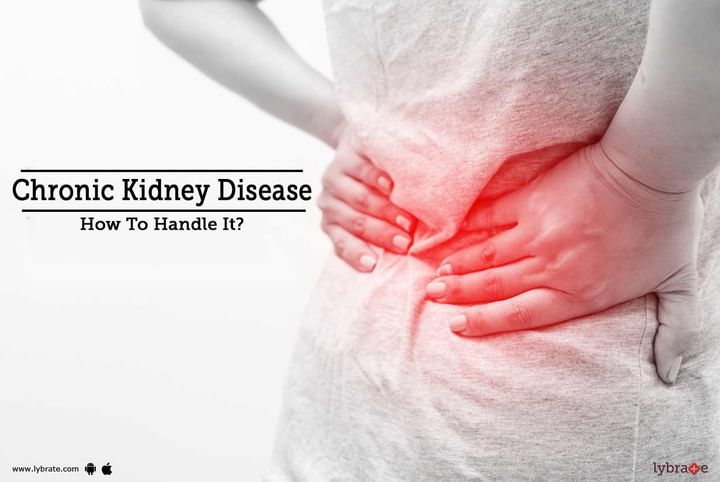Chronic Kidney Disease - How To Handle It?
Chronic kidney disease is categorized under various stages and your doctor will periodically assess the severity of kidney damage. Thankfully, the good news is that kidney disease progresses slowly and early detection will help to deter further complications.
How stages of Chronic Kidney Disease are Determined?
The stages are determined by glomerular filtration rate or GFR that measures kidney function. The glomerular filtration rate is a calculation that estimates how well the blood is filtered by the kidneys. It is usually calculated using a formula that takes into account the individual's age, gender, race and serum creatinine levels. The lower the GFR, the worse the kidney function and more the damage.
Five Stages of Chronic Kidney Disease
The National Kidney Foundation has created a guideline for nephrologists to help identify the severity of kidney damage and provide the right care accordingly. Each stage calls for different tests and treatments:
| Stage | Description | GFR | What Can Be Done |
|---|---|---|---|
| Stage 1 | Early kidney damage | 90 or above | The exact cause of the kidney disease will be determined by your doctor. Your blood pressure and sugar levels are to be constantly watched out for. Opt for a kidney-friendly diet. |
| Stage 2 | Mild kidney damage | 60 to 89 | Continuously monitor your condition and check how quickly the disease is progressing. Manage high blood pressure and diabetes. |
| Stage 3 | Moderate kidney damage | 30 to 59 | Any complications like anemia, bone disease will be checked and treatment will be administered by your doctor |
| Stage 4 | Greater kidney damage | 15 to 29 | Continue treatment and monitoring. If you are progressing towards kidney failure, consult the best treatment options you have based on your condition |
| Stage 5 | Kidney failure | Below 15 | Start dialysis, consider kidney transplant and choose the right treatment |
How is Chronic Kidney Disease Treated?
The first step is to determine the cause of the disease and then take the right measures to alleviate it. In most cases diabetes and high blood pressure are the prime reasons. So, simple lifestyle changes can help to prevent the progression of the disease and reduce your symptoms. Here’s what you can do:
- Follow a diet that is easy on your kidneys: Watch your protein and sodium intake. Drink the right amount of fluids and incorporate super foods that will not deter your kidney function
- Weight Management: Make exercise a routine part and find the right exercise program that works for you. The more active you are, the lesser health problems you will have
- Avoid tobacco, smoking and alcohol
The first four stages of chronic disease focus on preserving the kidney function for as long as possible. The stages will help you analyze where you stand and what can be done to prevent kidney failure.



+1.svg)
